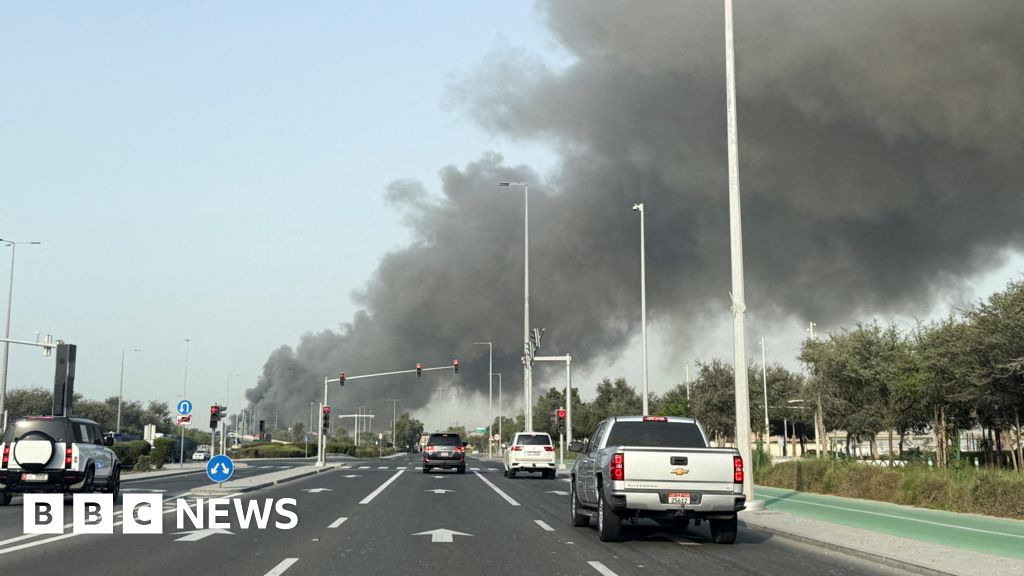About 12.7 million forcibly displaced and stateless people are in West and Central Africa, according to the UN Refugee Agency (UNHCR).
"From conflict to climate shocks, protection risks are rising — particularly for women and children, who represent 80% of the the forcibly displaced," said Abdouraouf Gnon-Konde, the UNHCR's regional bureau director for West and Central Africa. Gnon-Konde said the UN's data also showed that displaced people are "returning home in increasing numbers where conditions allow."
Nigeria, Burkina Faso and Cameroon are home to about 80% of the internally displaced persons (IDPs) in the region. Drought, flooding, and chronic violence and insecurity have forced people to seek shelter in other regions within their countries.
According to the United Nations, more than 194,200 internally displaced persons returned to their homes in Mali from April through January 2025, and 64,700 in the Central African Republic
UN-sponsored voluntary returns
Chad is providing refuge to almost 780,000 people who have fled Sudan's civil war, with another 250,000 expected to arrive by the end of the year. The country also hosts large numbers of refugees from the Central African Republic to the south and Niger to the west. Each group of displaced people faces unique dangers, and Chad is struggling to host all of them.
The United Nations has been sponsoring voluntary returns to countries of origin within West Africa. Eleven thousand refugees returned to countries such as Nigeria, the Central African Republic and Mali from January through April 2025.
"Humanitarian crises are, first of all, political crises," Alpha Seydi Ba, a UNHCR spokesperson based in Dakar, Senegal, told DW. "Unless we are able to make peace, there won't be a situation where the returns are possible."
Ba said repatriations were carried out whenever and wherever possible and on a voluntary basis. As a result, the UNHCR says resettlement departures rose by 34% in 2024 (4,000 individuals).
 Repatriation often means relative safety has been achieved in refugees' home countriesImage: Elena Lauriola/UNHCR
Repatriation often means relative safety has been achieved in refugees' home countriesImage: Elena Lauriola/UNHCR"I think it's always good news when people are able to go back home," Ba said. "Exile, it's not a choice. Being a refugee is not a choice, when someone leaves their home and everything behind."
"We're seeing those people returning and rebuilding," Ba said. "I think it's one of the best things that can happen in the humanitarian person in his career."
'Migrants become stranded'
Though repatriation efforts have yielded some positive results, the UN's regional resettlement quota has been reduced by 64% in 2025. To complicate matters, the UNHCR's regional budget overall has been reduced by 50% between 2024 and 2025.
"Our operations are very severely impacted," Ba said. "Meaning less food, less shelter, less health care, less clean water, less gender-based protection, which makes overall protection systems or displaced people more fragile," Ba added. "That's why the UNHCR in the region is at a tipping point."
"The number of migrants, be it internally displaced people or migrants, is increasing," Luisa de Freitas, who leads the Regional Data Hub in Dakar for the International Organization for Migration (IOM), told DW. "We are seeing that, overall, more and more people are on the move."
Though many people move to foreign countries because of climate disasters, armed conflict or instability, the IOM reports that economic needs are also a key driver of migration.
Chad 'opened the doors to all the refugees from Sudan'
"Over 70% to 72% of the individuals that we survey at our flow monitoring points in 2024 were there because of labor or economic reasons," de Freitas said.
De Freitas said migration routes had become increasingly dangerous as EU nations and their partners within Africa have sought to stem the flow of migration to Europe. However, this has not deterred migrants from attempting to do so.
"People move when they feel they have no other option," de Freitas said. "They will take routes that are less and less traveled. So what is happening is that a lot of these migrants become stranded."
New strategies needed
Simply putting up barriers or investing in forced removals of migrants is not the solution. Instead, de Freitas advised European nations to adopt a different approach that fosters and incentivizes regular migration, benefiting both home and destination countries.
"Spain has just launched two initiatives: one to regularize migrants per year, and they've also launched system where Senegalese can apply for temporary travel visas to go and work in Spain," de Freitas said. Many EU countries desperately need workers in sectors such as agriculture, she added.
"Circular migration allows migration on a temporary basis to address labor shortages in destination countries, while providing migrants with access to employment and education opportunities.
"Basically, try to make migration a win-win situation for both ends," de Freitas said.
Edited by: Chrispin Mwakideu

 8 months ago
9
8 months ago
9








